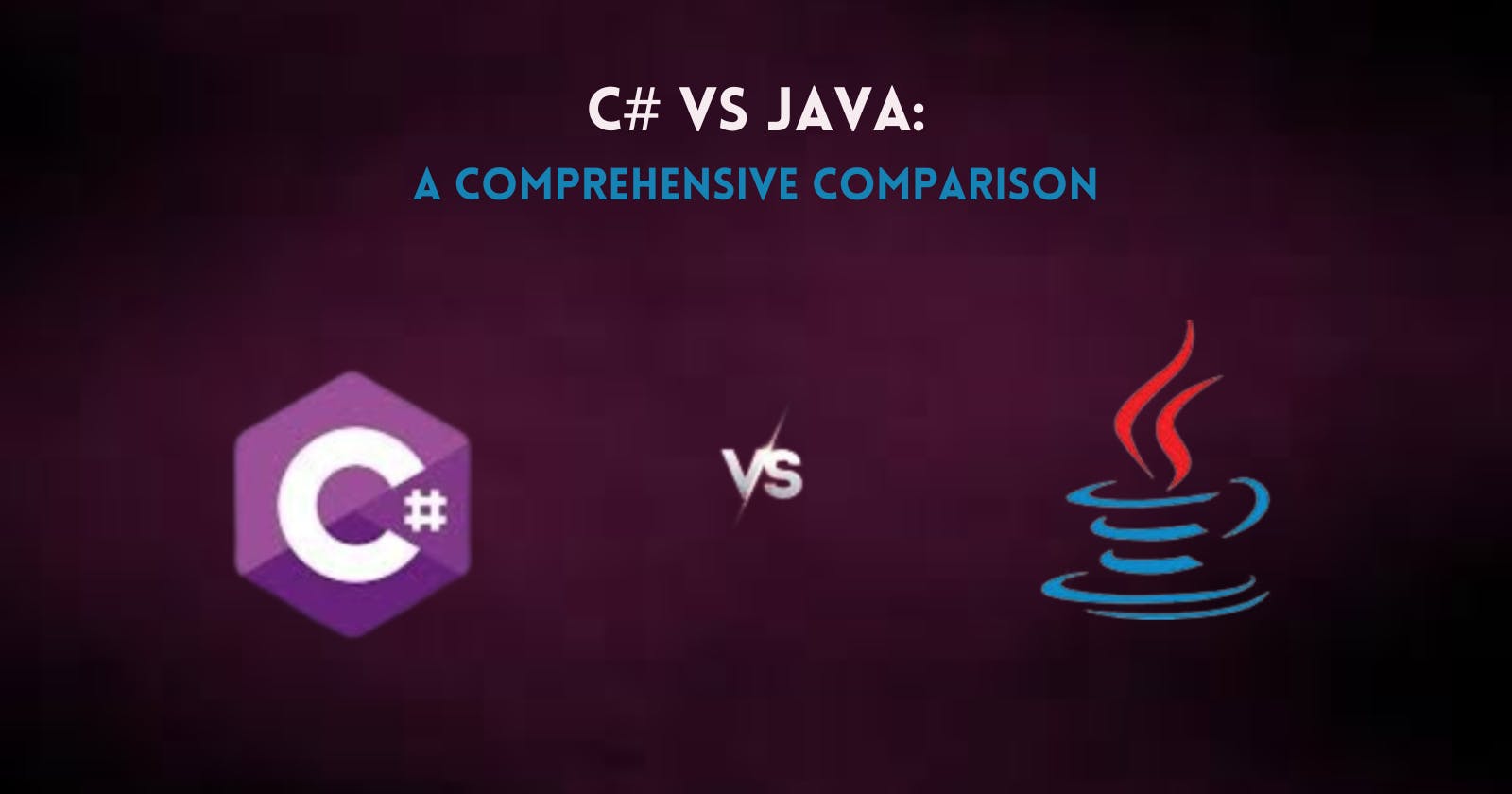C# vs Java: A Comprehensive Comparison
Comparing C# and Java side by side so you can decide which to utilize for your upcoming project.
Introduction
In the dynamic landscape of software development, selecting the appropriate programming language counts for the success of projects. So many different programming languages are available, which sometimes makes it confusing. Selecting inappropriate language can cause stagnation or even failure of the project; in contrast, using the proper language can lead to smooth progress. This is genuine when it comes to C# and Java comparison. Both languages are used to build mobile and desktop applications. Also, they are general-purpose and capable of handling a broad spectrum of tasks, yet certain differences exist between them.
Let's examine these two programming languages side by side so you can decide which to utilize for your upcoming project.
What is C#?
C# is a Microsoft-developed object-oriented programming language that runs on a .NET framework. It is a versatile language designed to be user-friendly, modern, and easy to use. C# is extensively utilized in web and desktop development, as well as in game development. Its strong connection to the C language family enhances its broad adoption and simplifies learning.
Features of C#:
Object-oriented
Automatic Garbage Collection
Interoperability
Type-safe
Modern syntax
Lambda and LINQ Expressions
Just-In-Time (JIT) compiler
What is Java?
Java is a general-purpose programming language designed with the specific aim of enabling developers to write code once run anywhere, therefore, it is a platform-independent language. Java applications are compiled into bytecode, enabling them to run on any Java Virtual Machine, irrespective of the operating system and architecture it operates on. It is utilized for designing a wide range of applications, including web development, mobile apps, and enterprise systems.
Features of Java:
Multithreading
Large Community
Platform-Independent
Architectural Neutral
Object-Oriented
High Performance
Key differences between C# and Java
As C# and Java share many similarities, these languages differ from one another in essential ways that users should be aware of. These differences can be attributed to various features, characteristics, or functionalities.
Here are some key differences between C# and Java:
| Parameters | C# | Java |
| Creation | Created as a part of Microsoft’s .NET | Created by Sun Microsystems |
| Generics Implementation | Integrated within the CLI, providing runtime availability of type information. | Implemented through erasures and casts during compilation into bytecode. |
| Programming Approach | Object-oriented and component-oriented | Object-oriented |
| Application | Web, Desktop, and Game development | Complex web-based programs |
| Dependency on Platforms | Cross-platform and compatible with Unix and Windows-based systems | Platform-independent, but it requires the JVM to run |
| Go-to support statement | Supports go-to statement | Does not support go-to support |
| Companies using | Microsoft, Coderus, etc | Spotify, Airbnb, etc |
A Comprehensive comparison between C# Vs Java
An in-depth comparison and analysis of the two programming languages, C# and Java, involves:
C# vs Java: platform support
Initially confined to Windows devices, C# has substantially broadened its horizons with frameworks like .NET Core and Xamarin. Hire C# developers who can develop for various platforms, encompassing macOS, Linux, Android, and iOS.
Java is widely known for its cross-platform capabilities and is famed for its "Write Once, Run Anywhere" approach. Java programs can run on any operating system that supports a Java Virtual Machine (JVM), such as Windows, macOS, Linux, and others.
C# vs Java: Security
Java restricts untrusted code through the use of sandboxing and its Security Manager, preventing unwanted access to confidential data. Bytecode verification additionally ensures that only reliable code is executed.
C# and the .NET framework provide extensive security libraries. Frameworks like the Windows Identity Foundation (WIF) notably improve identity management and authentication aspects.
C# vs Java: Performance and resource utilization
C# utilizes the RyuJIT compiler to translate intermediate C# code (CIL, or Common Intermediate Language) into native machine code right before execution. It also incorporates tiered compilation, adjusting optimization according to the code's usage patterns.
In accordance with Java's Write Once Run Anywhere philosophy, the HotSpot compiler dynamically optimizes code by monitoring runtime behavior and translating frequently used code routes into native machine code to guarantee adaptability across a variety of settings.
C# vs Java: Memory Usage
C# utilizes a mark-and-compact garbage collector to enhance performance by reducing breakdown, thus increasing efficiency. In the mark phase, live objects are identified from dead ones. Subsequently, in the compact phase, memory occupied by dead objects is reclaimed, and live objects are compacted into contiguous memory space.
Java employs generational garbage collection based on the observation that the majority of objects in typical software have a short lifespan. Consequently, the heap memory is divided into two generations: young and old.
Conclusion
In conclusion, a comparison of Java vs C# shows that each language has perks and drawbacks, making it appropriate for different cases. While C# seamlessly integrates with the Windows ecosystem and facilitates development, Java prides itself on platform independence and an extensive array of libraries and frameworks. Evaluating your project's needs is essential before selecting a language and hiring a developer. If you are still confused about these two languages, you can read C# vs java for a more detailed analysis.
